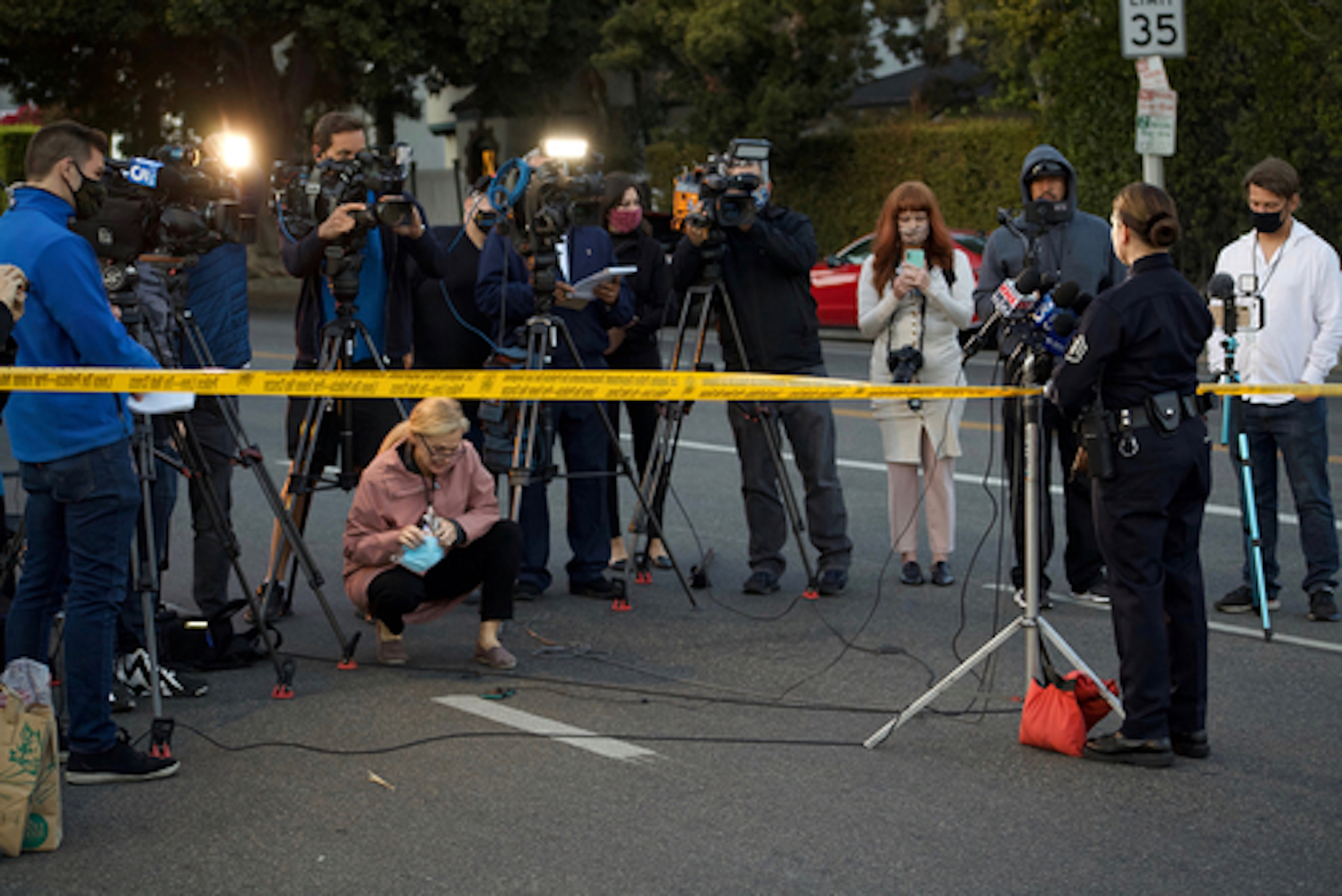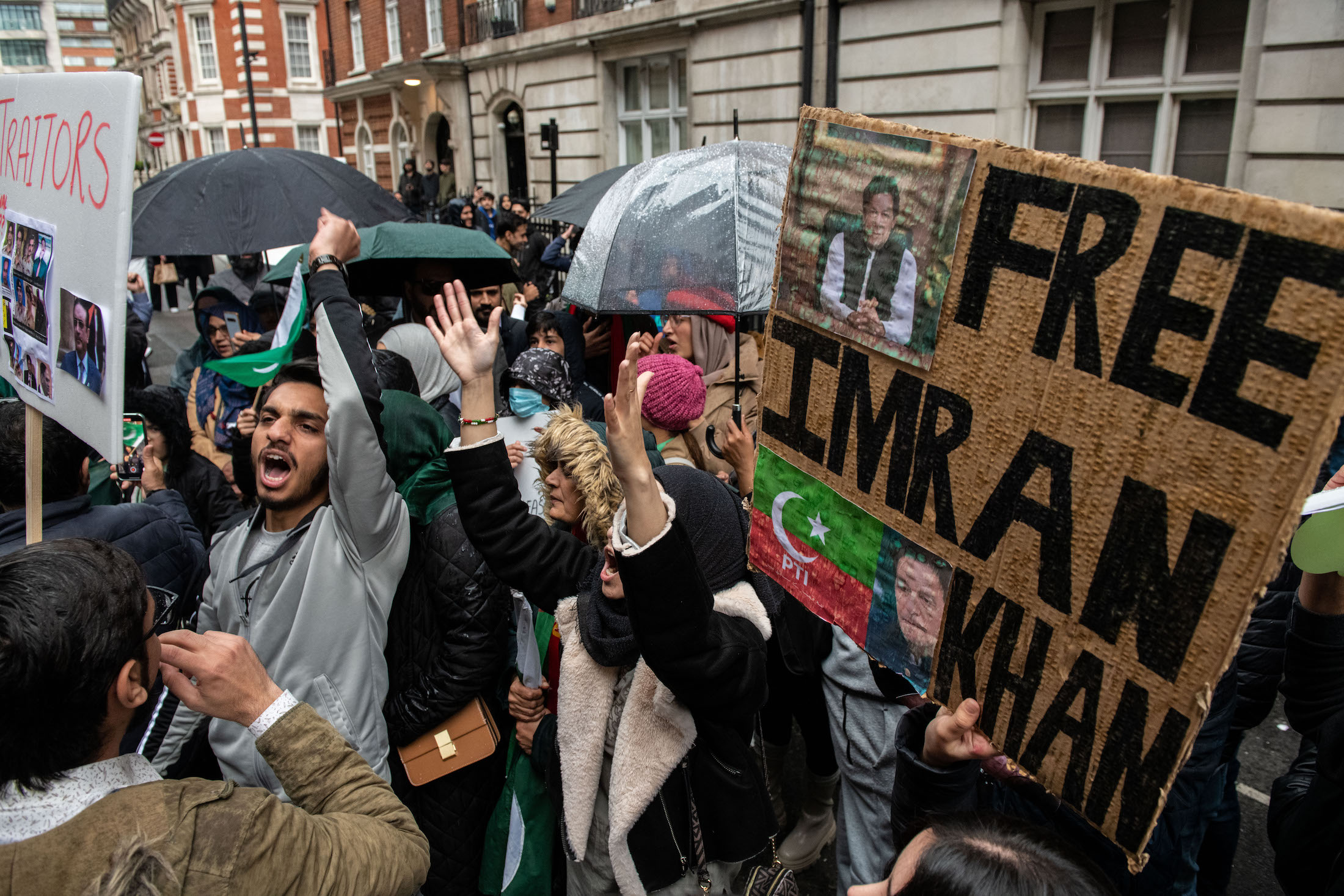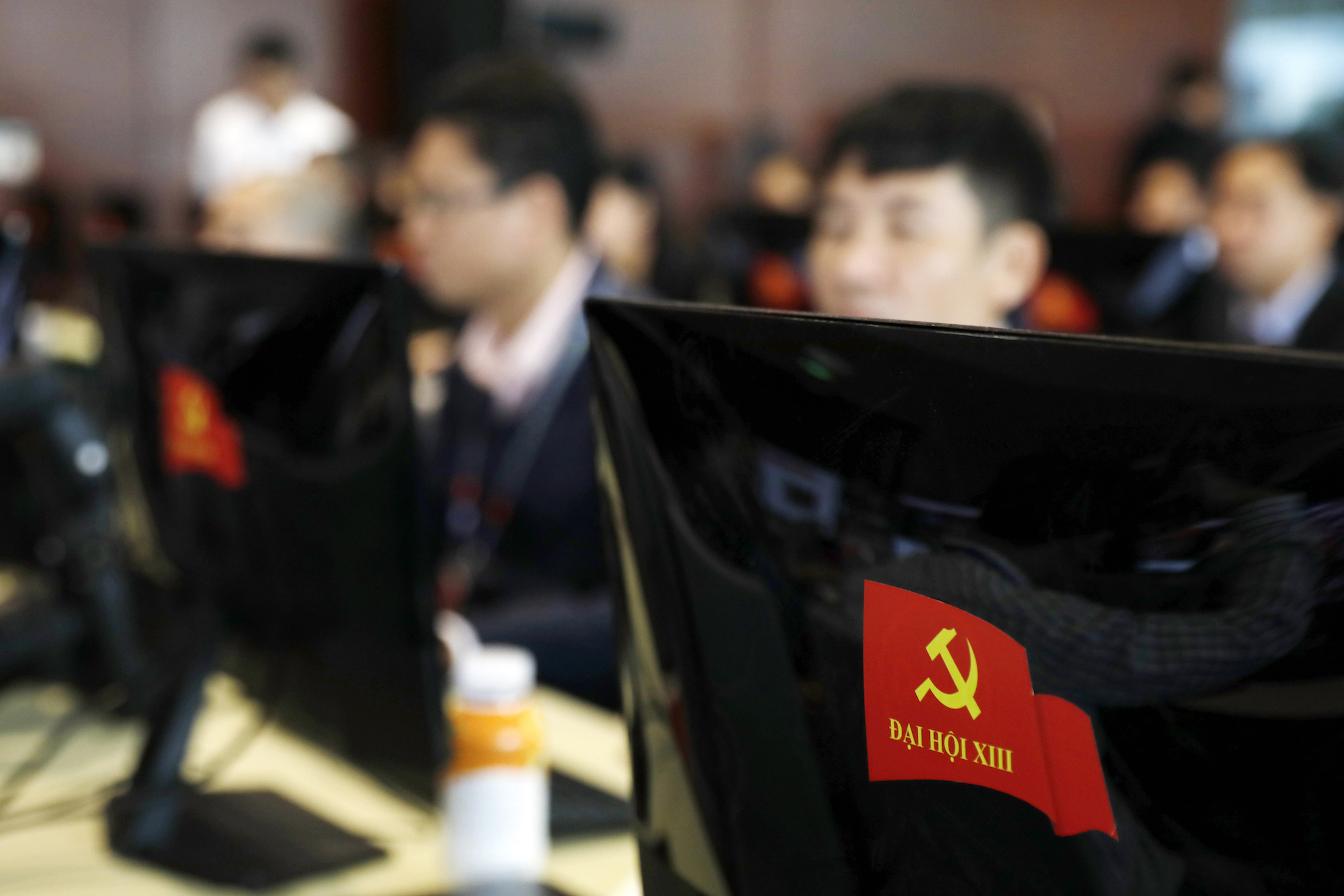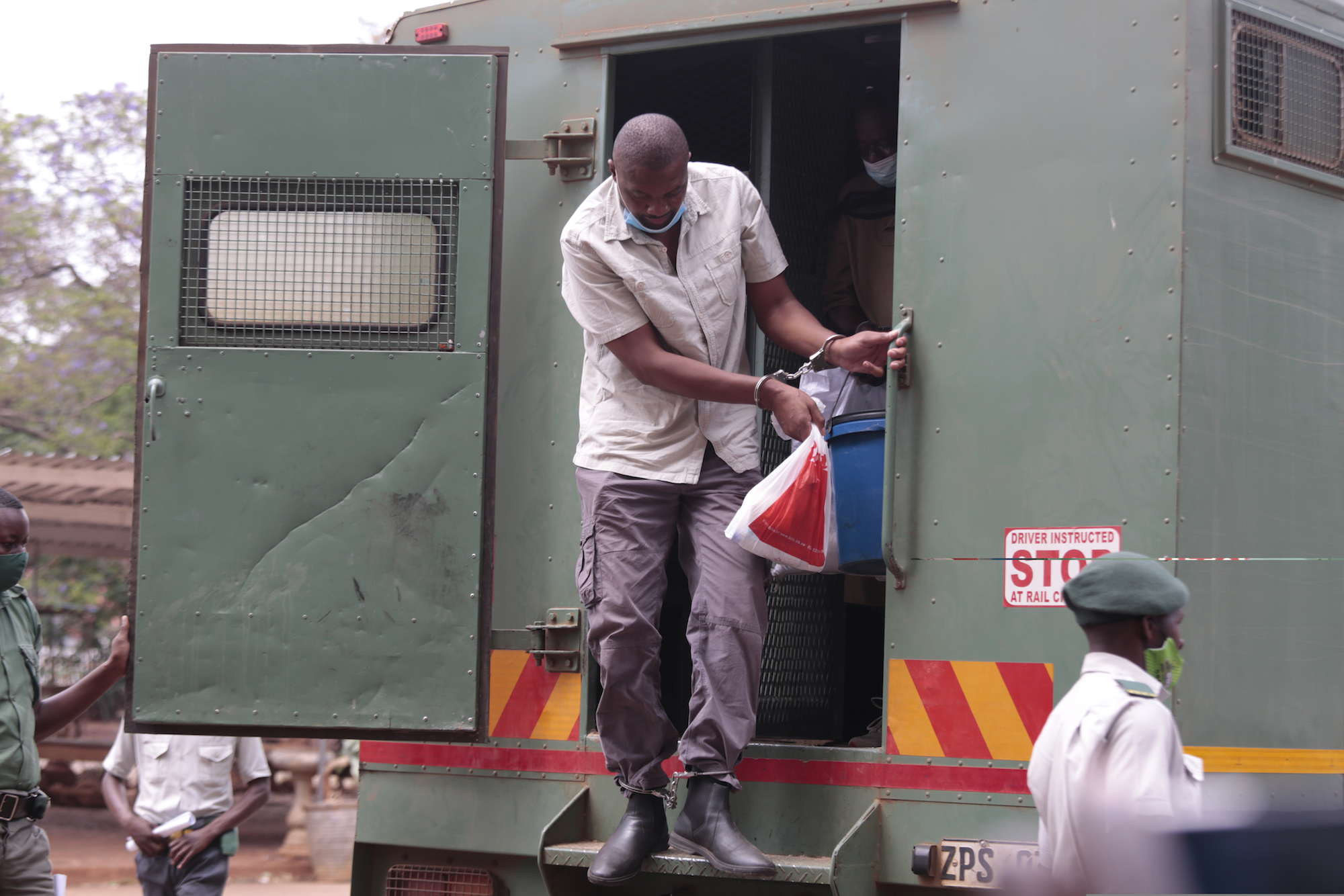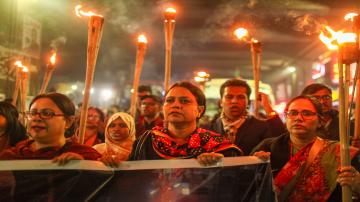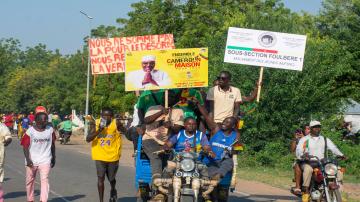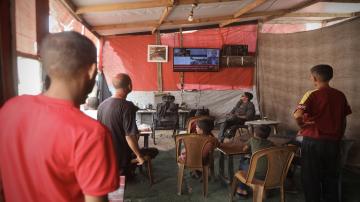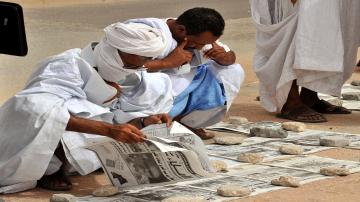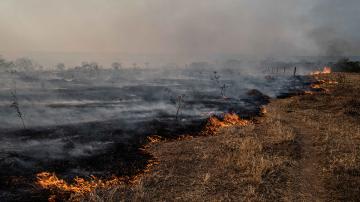Al Jazeera Journalism Review

Public Hostility Toward Legacy Media in Bangladesh
The December 2025 arson attacks on Prothom Alo and The Daily Star marked a turning point for journalism in Bangladesh. As public anger replaces state control as the primary threat, reporters are reassessing personal safety, editorial judgement, and professional credibility in a political transition where journalism itself is increasingly treated as an enemy.
Latest Articles
Ethical reporting - how to cover suicide responsibly
Sensationalist reporting of suicide cases has been shown to cause a rise in the numbers of people taking their own lives in affected communities. Journalists must take great care
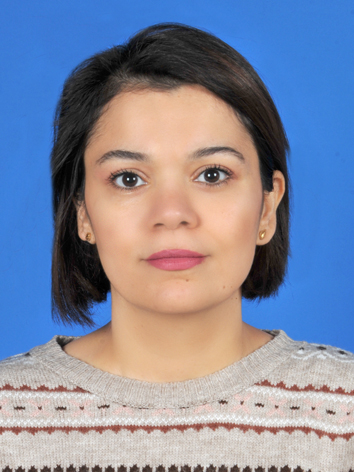
‘Focus on the story, not the storyteller’ - the dilemma of a diaspora journalist
When reporting on their homelands, diaspora journalists walk a fine line between emotional connection and objective storytelling

‘Don’t let someone else narrate your stories for you’ - travel journalists in the global south
THE LONG READ: Life as a travel journalist isn’t just for privileged Westerners ‘discovering’ quaint parts of south-east Asia and Africa

Why does Arab media fail so badly at covering refugee issues?
Arabic media discourse on refugees and migrants frequently aligns too closely with the Western narrative, often spreading fear of migrants while emphasising the burdens of asylum
‘People need to stop blindly obeying the law’ - journalists fighting on the fringes in Vietnam
THE LONG READ: Imprisoned, exiled and forced to base themselves overseas, independent journalists in Vietnam are punished harshly if they publish the ‘wrong’ sort of content. Some, such as Luật Khoa tạp chí, are fighting back

What does Zimbabwe’s new ‘Patriot Bill’ mean for journalists?
As Zimbabwe heads into elections this week, a new law dubbed the ‘Patriot Bill’ will further criminalise journalism

Opinion
Arsalan Bukhari
Public Hostility Toward Legacy Media in Bangladesh
The December 2025 arson attacks on Prothom Alo and The Daily Star marked a turning point for journalism in Bangladesh. As public anger replaces state control as the primary threat, reporters are…
Salma Saqr
Migration Issues and the Framing Dilemma in Western Media
How does the Western press shape the migration narrative? Which journalistic frames dominate its coverage? And is reporting on anti-immigration protests neutral or ideologically charged? This…
Hisham Zakkout
From News Reporting to Documentation: Practical Lessons from Covering the War on Gaza
From the very first moment of the genocidal war waged by Israel on Gaza, Al Jazeera correspondent Hisham Zaqout has been a witness to hunger, devastation, war crimes, and the assassination of his…
Diaries
From News Reporting to Documentation: Practical Lessons from Covering the War on Gaza
From the very first moment of the genocidal war waged by Israel on Gaza, Al Jazeera correspondent Hisham Zaqout has been a witness to hunger, devastation, war crimes, and the assassination of his colleagues in the field. It is a battle for survival and documentation, one that goes beyond mere coverage and daily reporting.

A Sudanese Journalist in the Grip of the Rapid Support Forces
She was arrested, tortured, nearly raped, threatened with death, and subjected to degrading abuse. Her brother was brutally mistreated in an effort to locate her. In the end, her family had to pay a ransom to secure her release. She sought refuge abroad, but eventually returned to Sudan to continue documenting the war’s toll, particularly in El Fasher, a city now under siege. This is the harrowing account of a Sudanese journalist detained and tortured by the Rapid Support Forces.

Anas Al Sharif; Killed by Israel, but His Final Words Will Echo far Beyond His Death
For over a year and a half, Anas Jamal al-Sharif refused to leave northern Gaza, documenting the destruction and loss that others tried to hide. Tonight, Israel silenced his voice, but his final words, written on April 6, will echo far beyond his death.

Reports
Public Hostility Toward Legacy Media in Bangladesh
The December 2025 arson attacks on Prothom Alo and The Daily Star marked a turning point for journalism in Bangladesh. As public anger replaces state control as the primary threat, reporters are reassessing personal safety, editorial judgement, and professional credibility in a political transition where journalism itself is increasingly treated as an enemy.

Migration Issues and the Framing Dilemma in Western Media
How does the Western press shape the migration narrative? Which journalistic frames dominate its coverage? And is reporting on anti-immigration protests neutral or ideologically charged? This analysis examines how segments of Western media echo far-right rhetoric, reinforcing xenophobic discourse through selective framing, language, and imagery.
Polarised, Intimidated, Silenced: The Media Under Siege in Cameroon’s Election
Cameroon’s 2025 presidential election exposed a troubling paradox: a nation voting under the watchful eye of power, while its press remained silenced. From the arrest of a teenage reporter to bans on political debate and digital manipulation, freedom of expression is under siege, and journalism is on trial.

What Image of Gaza Will the World Remember?
Will the story of Gaza be reduced to official statements that categorise the Palestinian as a "threat"? Or to images of the victims that flood the digital space? And how can the media be transformed into a tool for reinforcing collective memory and the struggle over narratives?

Journalism in Mauritania: Behind the Facade of Press Freedom Indicators
Mauritania holds the top position in the Arab world in the Press Freedom Index published by Reporters Without Borders. However, behind this favourable ranking, the media and journalists face significant challenges, chief among them the ambiguity surrounding the definition of a "journalist" and the capacity of media professionals to fulfil their roles in accountability and oversight. Despite official efforts, the defining feature of Mauritania’s media landscape remains its persistent state of fluctuation.

How Can Journalism Make the Climate Crisis a People’s Issue?
Between the import of Western concepts and terminology that often fail to reflect the Arab context, and the denial of the climate crisis, or the inability to communicate it in clear, accessible terms, journalism plays a vital role in informing the public and revealing how climate change directly affects the fabric of daily life in the Arab world.

